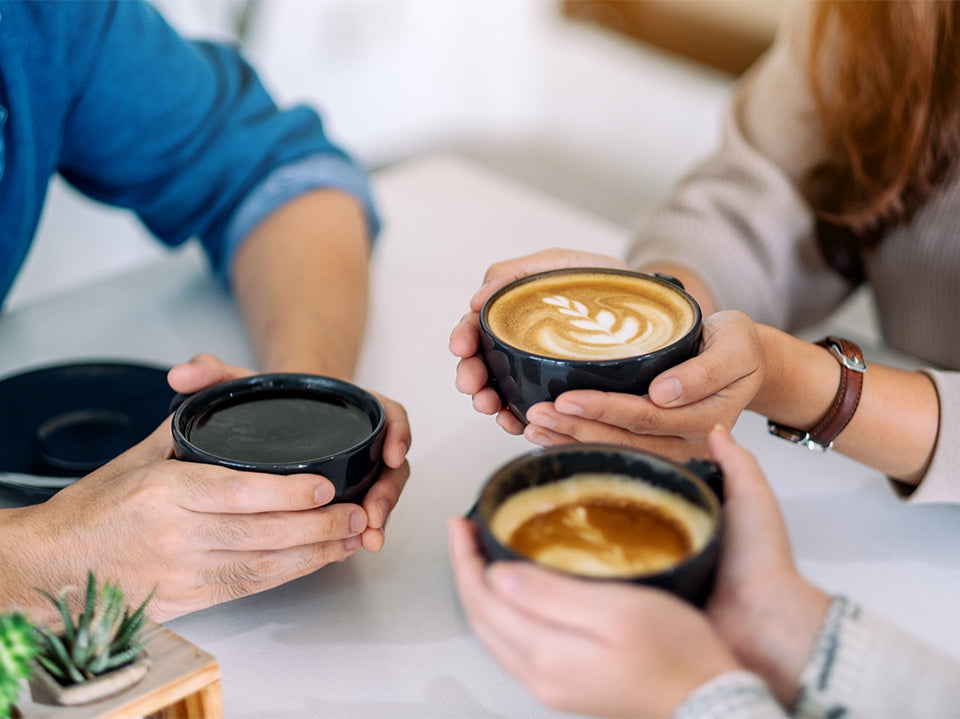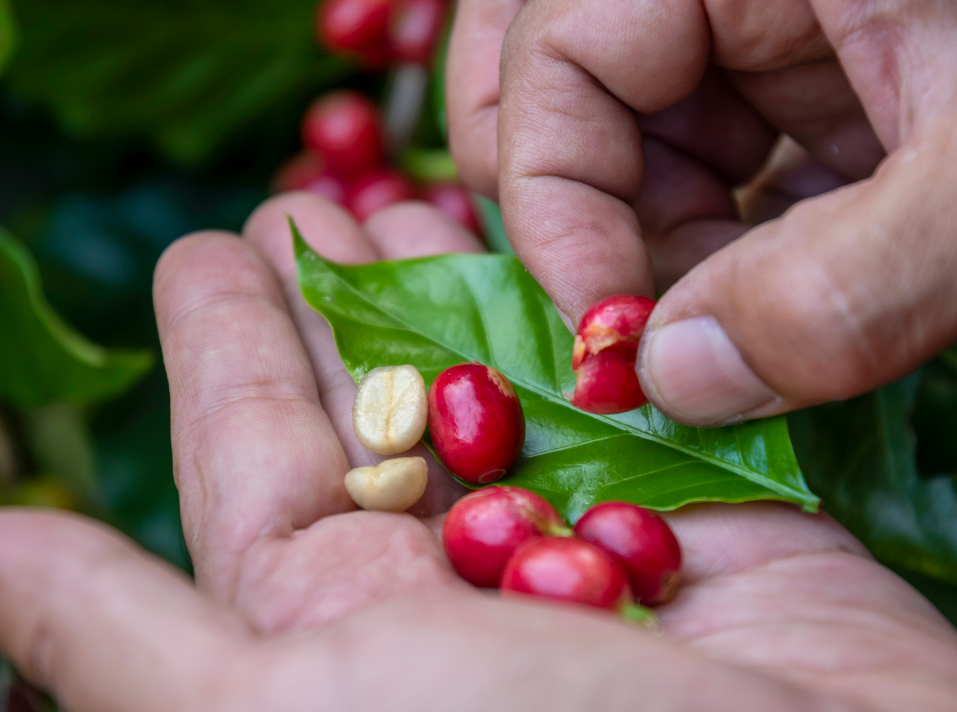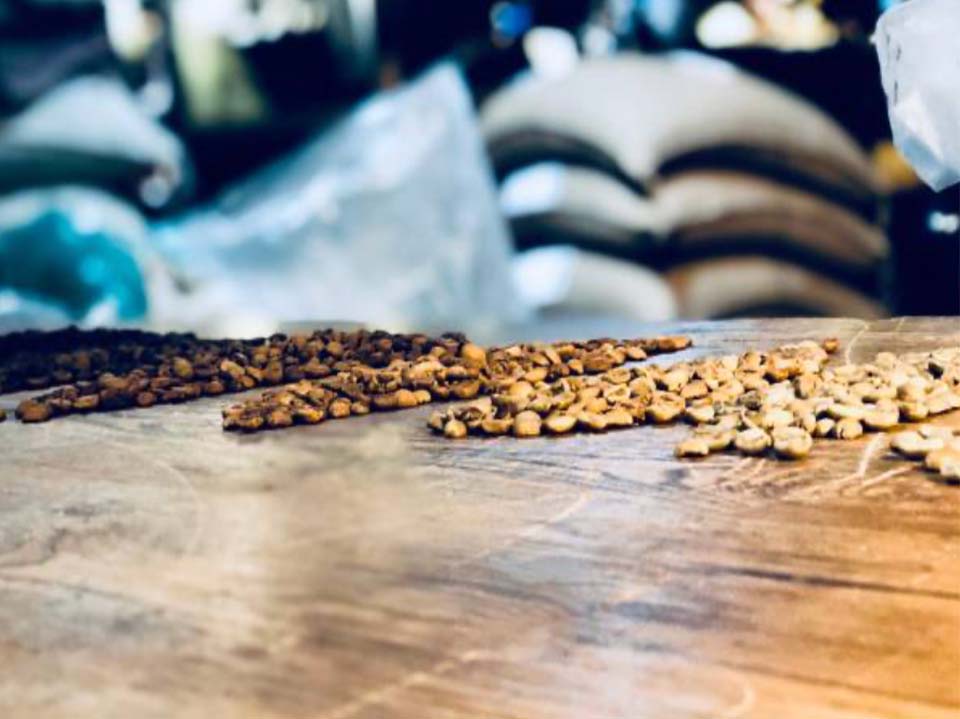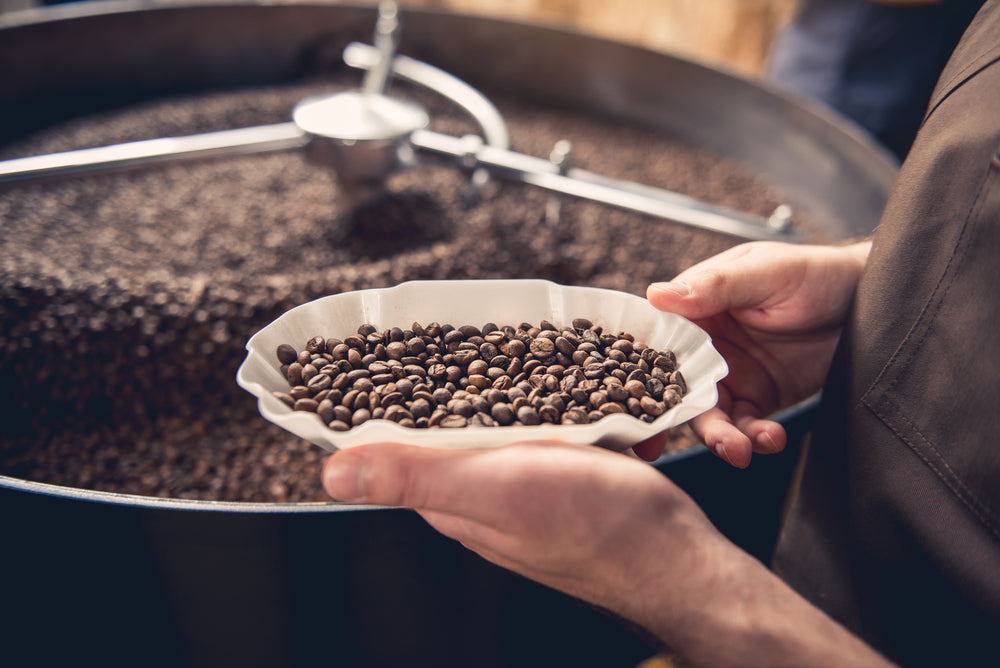If you are an adult, you likely rely on caffeine to get you through the day. While many people drink coffee and other drinks to gain energy and mental awareness, some do the opposite; they try to avoid caffeine. Whether you are sensitive to caffeine or looking to reduce your caffeine intake, there are plenty of options for you.
While caffeine-free coffee still provides some caffeine, it is a great alternative if you don’t want to give up coffee's wonderful taste. Keep reading to learn about the caffeine levels in decaf coffee and other popular drinks.
Decaf Production Process
There are three methods for producing caffeine-free coffee beans:
- Solvent-based process: This decaffeinating process involves the use of methylene chloride, ethyl acetate, and water to extract the caffeine from the bean. These chemicals evaporate so they are not present in the coffee.
- Swiss water process: This organic method relies on osmosis to remove the caffeine from the coffee bean and is the way we make decaf coffee beans here at Di Stefano. It is also the most effective and safest method to make the healthiest decaf coffee.
- Carbon dioxide process: This method uses carbon dioxide to create caffeine-free coffee and leaves the coffee’s flavour intact.
How Much Caffeine Is In Decaf Coffee?
Decaf coffee is not 100% caffeine-free. However, 97% of the caffeine in decaf coffee is removed. The caffeine content in low-caffeine coffee is determined by the decaffeinating process and the type of coffee bean. On average, a 12-ounce cup of caffeine-free coffee contains about 7 mg of caffeine, whereas a regular 12-ounce cup of coffee would contain about 70-140 mg of caffeine. Even though the caffeine content in decaf coffee is much lower than in regular coffee, those trying to avoid caffeine should still be cautious.
Here at Di Stefano, the caffeine levels in our products are less than 0.1% or less than 0.006g in a 5.6g coffee pod. So, if you’re a devout decaf coffee drinker, you will have no problem avoiding caffeine with us!
Caffeine Content in Coffee vs. Green Tea
So what is the caffeine content in coffee vs. green tea? Well, if you are trying to limit your caffeine intake, green tea is a fabulous choice. While you may crave a tasty cup of coffee, it provides three times as much caffeine as green tea. An 8-ounce cup of coffee has an average of 96 mg of caffeine, and the same size cup of green tea contains 29 mg. However, multiple factors can affect the caffeine content in green tea, including:
- Tea variety
- Harvest time of leaves
- Temperature
- Brewing time
- Brewing method
Therefore, some green tea varieties will have more caffeine than others, just as some coffees will have more caffeine than others, depending on their processing method.
Caffeine Content in Aeropress Coffee
An Aeropress is a piece of coffee brewing equipment that has taken the industry by storm in recent years. Aeropress coffee makers are often compared to the classic French Press, due to the smooth black coffee flavour it produces. Estimates suggest the Aeropress will produce roughly six ounces of coffee per cup, which results in around 110 mgs of caffeine in your cup!
Caffeine Content in Coffee vs. Energy Drinks
The caffeine content in coffee vs. energy drinks is pretty much the same. The average amount of caffeine in a 250 ml energy drink is 80 mg, which is very similar to coffee. Unless you drink a ton of energy drinks, your caffeine intake will be about equal.
At Di Stefano, we strive to deliver decaffeinated coffee beans of the highest quality and taste along with the best decaf coffee pods on the market. Indulge in delicious, cafe-quality coffee right in the comfort of your own home. Shop our caffeine-free coffee today! Looking for something more exotic? Try out our own specialty coffee, available in Nespresso compatible pods!
---
About the Author
Nicolas Di Stefano, a third-generation Master Roaster and Director of Di Stefano Coffee, continues his family’s proud legacy of exceptional coffee craftsmanship. Blending traditional Italian roasting methods with a modern dedication to quality, Nicolas ensures every cup embodies the rich flavour and consistency Australians have come to love.



